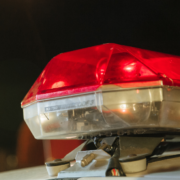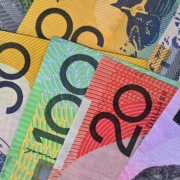Finding Family Outside the Box
By: Helping Hands TV
“The notion of family”, says Mike Gore from Charitabl., “is incredibly fluid. It’s always changing.”
Mike has a unique family story. Born in India and adopted at six months old by an Australian family, he was a ‘dark skinned kid’ who grew up in one of the whitest neighbourhoods in Sydney.
His family life brought challenges, like racism and questions about his sense of belonging, but he also passionately shares during this Helping Hands panel discussion that his family experience has been one of the most powerful and beautiful experiences of his life.
Mike is joined by Emmylou Brasser, from the Salvation Army’s Oasis Youth Services, and by Brett Ryan, from Focus on the Family Australia, to explore exactly what family is and where to find it.
In an ideal world, Brett says, a secure and safe family environment is a place where its members thrive because, “everyone has a voice. Everyone has a chance to be listened to … (to be) selfless, serving one another. When everyone can look out for each other to bring out the best.”
While the nuclear family of two parents and their children still proves itself to be a healthy model in which everyone thrives, this identity of family represents about 44% of all Australian families, Brett explains. Today, biological families come in all different shapes and sizes, with growing numbers of single parent families and even families who choose not to have children but shower love on their fur babies instead.
For many young people visiting the Oasis Youth Services, connection to biological family can be triggering and stressful because of trauma experienced in the past. Emmylou says that for some young people, the biological family is not a source of healthy and supportive relationships. Knowing how important family is, she encourages the young people who she works with to think outside the box.
“For them, I find that they redefine family through the people in the community who look out for them. (Family is) their support/protective people – it could be a coach in a sports team or an older mentor. For a lot of Aboriginal and Torres Strait Islander families that I work with, it can be a beautiful, big, blended, extended family; cousins, family friends – just people looking out for them.”
What We Need For a Sense of Family
The three most important elements to look for in finding your family, Mike says, are as follows:
- Does it provide a sense of safety?
- Has it created a sense of belonging?
- Do you feel noticed?
Sadly, we can’t all answer yes to the above questions within our biological families. But, Emmylou encourages, there are simple building blocks of finding family that anyone can employ.
“When I start working with (young people), the first thing that I look at is, How can we build up that safety net or that support network for them? Often that is looking at their interests, their skills – finding things in the community they can be a part of, whether that be studying a course, or joining a sports team, or going to a church … anything like that (to) help them connect to safe people.”
The security of a safe space where we know that our contributions matter and we can create meaningful connections is a core desire humanity shares. While we might not get to choose our parents or our siblings, Brett says, we can choose the people around us who we allow into our world.
But Brett also warns against abandoning challenging relationships in favour of surrounding ourselves only with a network of people who agree with everything we say. “Family is messy, and we don’t always get along. But we can love each other and learn to respect one another. That’s the ideal.”
See the DIFFERENT TYPES OF FAMILIES discussion and the full catalogue of Helping Hands panels at helpinghands.tv. Catch up on full episodes of Helping Hands on 9NOW.
Article supplied with thanks to Helping Hands TV.
Feature image: Photo by Amir Hosseini on Unsplash
About the Author: Helping Hands is an Australian produced TV program that airs on 9GEM, Channel 9 and 9NOW, and showcases people and organisations who make the world a better place.


